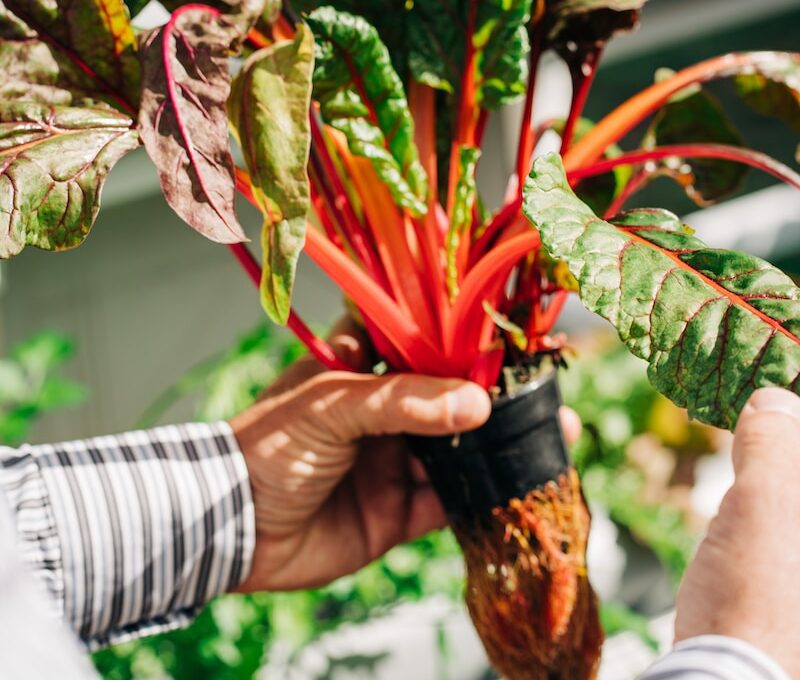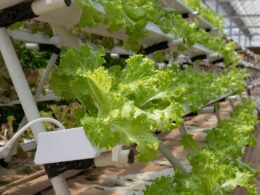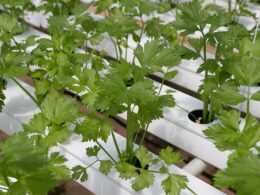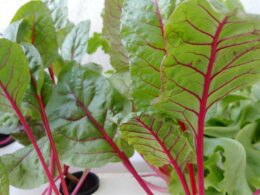Are you considering starting a hydroponic garden but unsure about what type of seeds to use? The good news is that many types of seeds can thrive in a hydroponic environment. However, it’s important to understand the characteristics of different seeds to select the best ones for your hydroponic setup.
Choosing the right seeds for hydroponics is crucial for a successful and bountiful harvest. Certain seeds are better suited for hydroponics due to their size, growth rate, and ability to adapt to the unique growing conditions of a hydroponic system.
In this article, we’ll explore the factors you should consider when selecting seeds for hydroponics, as well as some tips to ensure a successful harvest. So, let’s dive in and discover if you can use any seeds for hydroponics!
Understanding Hydroponic Seed Selection
To ensure optimal growth and yield in your hydroponic system, it’s important to carefully select the right seeds for the job. While you can technically use any seeds in a hydroponic setup, not all seeds are created equal. Choosing seeds that are specifically suited for hydroponic farming can result in increased yields and healthier plants.
One of the benefits of hydroponic farming is that it allows for more control over the growing process. This means that you can choose seeds that are best suited for your specific hydroponic setup and environmental conditions. It’s important to do your research and find the best hydroponic seed suppliers to ensure that you’re getting quality seeds.
When selecting seeds for hydroponic farming, it’s important to consider factors such as plant size, nutrient requirements, and growth rate. Some seeds may be better suited for hydroponic farming than others, such as lettuce and herbs.
By selecting the right seeds for your hydroponic setup, you can ensure that you’re setting yourself up for success and maximizing your yields.
Small Seeds Ideal for Hydroponics
Small seeds are perfect for hydroponic growing! One reason is that seed size determines the type of hydroponic system you can use. Smaller seeds require less space, which means you can use a smaller system. This is great news for those with limited space or who want to grow plants indoors.
Another advantage of small seeds is that they have lower nutrient requirements. This means you can use a more simplified nutrient solution, which is easier to manage and less expensive.
When selecting seeds for hydroponics, it’s important to consider the seed size. Small seeds, such as lettuce, spinach, and herbs, are ideal for hydroponic growing. These seeds require less space and nutrients, making them perfect for smaller hydroponic systems. Additionally, small seeds have a shorter germination time, which is important for plants that need to be harvested quickly.
In summary, small seeds are perfect for hydroponic growing because they require less space and nutrients. This makes them ideal for smaller hydroponic systems and indoor gardening. When selecting seeds for hydroponics, consider the seed size and nutrient requirements to ensure optimal growth and harvest. Happy hydroponic gardening!
Quick-Growing Seeds for Hydroponics
Looking for a fast and efficient way to grow your plants hydroponically? Check out these quick-growing seed options! Hydroponic gardening has many benefits, including the ability to grow crops in a controlled environment without soil.
One of the advantages of hydroponics is that you can use quick-growing seeds to get your plants to maturity faster. When it comes to quick-growing seeds for hydroponics, there are a few options to consider.
One of the most popular choices is lettuce, which can grow from seed to harvest in as little as 30 days. Other fast-growing options include herbs like basil and cilantro, as well as microgreens like radish and broccoli. These crops not only grow quickly, but they also offer a high yield in a small space.
Using quick-growing seeds in your hydroponic garden can save you time and money in the long run. By getting your plants to maturity faster, you can enjoy fresh produce sooner and maximize your yield. Plus, you can rotate crops more frequently and experiment with different varieties.
So if you’re looking for a way to get the most out of your hydroponic garden, consider planting some quick-growing seeds and enjoy the benefits of hydroponic gardening today!
Are Tomatoes a Good Plant for Hydroponic Systems?
Growing tomatoes without soil is becoming increasingly popular in hydroponic systems. Hydroponics allows for precise control over nutrient levels and pH, leading to faster and healthier growth. Tomatoes thrive in hydroponic setups as their roots receive constant access to oxygen and necessary nutrients. This method also minimizes the risk of soil-borne diseases and pests, ensuring a higher yield of juicy, flavorful tomatoes.
Avoiding Seeds Unsuitable for Hydroponics
It’s important to be aware of which types of seeds are not suitable for hydroponic gardening. While hydroponics can be a great way to grow plants, not all seeds are created equal.
Here are some things to consider when sourcing seeds for your hydroponic garden:
-
Avoid seeds that require a lot of space to grow. Plants that grow too large will quickly outgrow the container in a hydroponic system. Stick to seeds that are known to produce smaller plants or those that grow well in containers.
-
Avoid seeds that require a lot of soil. Since hydroponics doesn’t use soil, seeds that require a lot of it to grow will not do well in a hydroponic system. Instead, look for seeds that can grow in water-based solutions or other hydroponic growing media.
-
Store your seeds properly. Hydroponic seed sources may include specialty stores or online retailers. When you receive your seeds, make sure to store them in a cool, dry place to maintain their viability. Proper seed storage for hydroponics is essential to ensure that your plants will grow strong and healthy.
By being mindful of which seeds are suitable for hydroponic gardening, you can ensure that your plants will thrive in their new environment. Remember to do your research and choose seeds that are well-suited for hydroponic growing. With the right seeds and proper storage, you can look forward to a bountiful harvest from your hydroponic garden.
Conclusion and Tips for Successful Hydroponic Seed Selection
To ensure a successful hydroponic garden, it’s crucial to consider the suitability of your seed selection and follow proper storage techniques for maintaining their viability. When selecting seeds for hydroponics, it’s important to choose those that have high seed viability and germination rates. This means that the seeds have a high chance of sprouting and growing into healthy plants.
To help you choose the right seeds for your hydroponic garden, here’s a table that shows the seed viability and germination rates of some common hydroponic crops:
| Crop | Seed Viability | Germination Rate |
|---|---|---|
| Lettuce | 4-5 years | 95% |
| Basil | 4-5 years | 85% |
| Tomatoes | 4-6 years | 80% |
| Cucumbers | 5-6 years | 70% |
As you can see, lettuce has the highest seed viability and germination rate, making it a great choice for hydroponics. Basil and tomatoes also have high rates, while cucumbers have a slightly lower rate.
By choosing seeds with high viability and germination rates, you’ll increase the chances of having a successful hydroponic garden. Remember to also store your seeds properly to maintain their viability, such as keeping them in a cool, dry place. With the right seed selection and storage techniques, you’ll be on your way to a thriving hydroponic garden.
Frequently Asked Questions
What is the best type of water to use for hydroponics seed selection?
When it comes to selecting the right water for hydroponic seedlings, there are a few key factors to consider. Firstly, pH considerations are crucial, as the pH of your water can have a significant impact on the health and growth of your plants. Secondly, mineral content is also important, as certain minerals can be beneficial or detrimental to plant growth depending on their levels.
To ensure the best results, it’s important to choose a water source that has a balanced pH and mineral content. So, whether you’re using seeds from your own garden or purchasing them from a supplier, be sure to prioritize your water selection for optimal results.
Are there any specific nutrients that should be used for hydroponics seed selection?
When it comes to hydroponics, choosing the right seeds is just the beginning. Hydroponic nutrient requirements are specific, so it’s important to select seeds that will thrive in this environment.
One of the best seed selection methods for hydroponics is to choose varieties that are known to be high-yielding and disease-resistant.
Additionally, it’s important to consider the nutrient requirements of the plants you want to grow and select a nutrient solution that will provide them with everything they need to thrive.
With the right seed selection and nutrient solution, you can create a hydroponic garden that produces healthy, vibrant plants year-round.
Is it necessary to sterilize hydroponic seeds before planting them?
To ensure the success of your hydroponic garden, it’s crucial to prioritize seed hygiene. Even though hydroponic plants are grown without soil, it doesn’t mean that the seeds you use are free from harmful pathogens.
To avoid contamination, sterilizing your seeds before planting them is highly recommended. This simple step can significantly improve the germination rates of your seeds and prevent the spread of diseases that can harm your plants.
By taking seed hygiene seriously, you can enjoy a thriving and healthy hydroponic garden.
Can hydroponic seeds be stored for long periods of time?
If you’re looking to store hydroponic seeds for a long time, it’s important to know that seed viability can decrease over time. To maximize the chances of successful germination, it’s recommended to store seeds in a cool, dry place with low humidity. Freezing can also help extend seed life.
However, it’s important to note that not all seeds are suitable for hydroponic growing, so be sure to choose seeds that are known to thrive in this method. Additionally, sterilizing seeds before planting can help prevent the spread of disease and increase the chances of successful growth.
How often should hydroponic seeds be watered?
To ensure the proper growth of hydroponic seeds, it’s important to provide them with adequate hydration. The frequency of watering will depend on the specific plant variety and the growing conditions, but typically, hydroponic seeds should be watered several times a day.
Additionally, it’s important to expose the seeds to the right amount of light to promote healthy growth. Too little light can cause stunted growth, while too much light can damage the delicate seedlings.
By providing proper hydration and light exposure, you can help ensure the success of your hydroponic seeds and enjoy a bountiful harvest.
Conclusion
So, can you use any seeds for hydroponics? The answer is not simply yes or no. There are certain types of seeds that are more suitable for hydroponic growing than others.
Small-sized seeds like lettuce, spinach, and herbs are ideal for hydroponics because they take up less space and grow quickly. In contrast, large seeds like corn or pumpkin are not suitable for hydroponics because they require more space and take longer to mature.
When selecting seeds for hydroponics, it’s important to choose quick-growing varieties that are adaptable to indoor growing conditions. You should also avoid seeds that are prone to disease, pests, or fungal infections.
By taking these factors into consideration, you can maximize your chances of success in hydroponic gardening. In conclusion, the right seed selection is crucial for successful hydroponic gardening. Choose small, quick-growing, and disease-resistant seeds for the best results.
With a little research and careful planning, you can grow a variety of fresh and healthy produce in your hydroponic garden.








